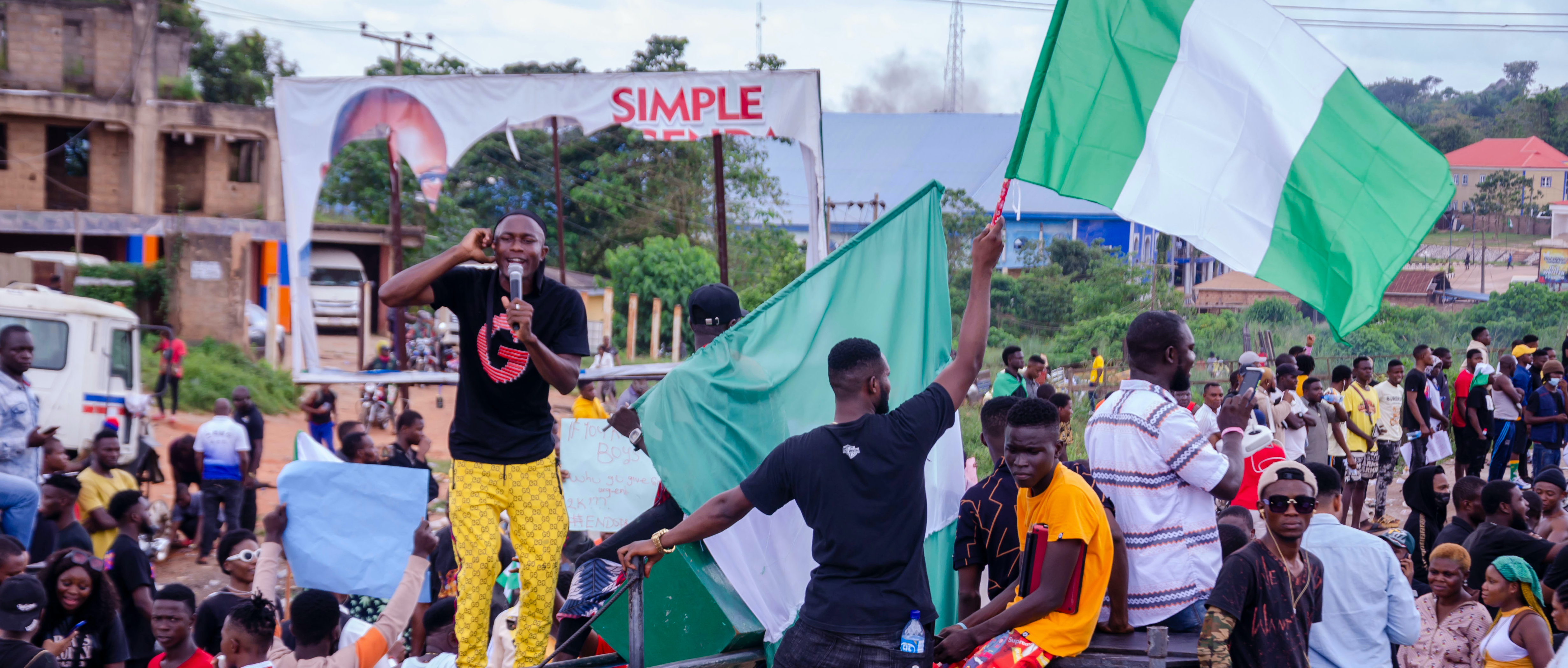THE PROJECT

Protests are radically reshaping our world. As a digital scholarship project, School Protests In Africa tracks the important role of schools and school-based actors like students and teachers in galvanizing struggles for social and political change in Africa.
Global social movements of the past fifteen years like the Occupy movement, the Arab Spring, Black Lives Matter, and democracy movements in Asia and Latin America have all shifted protest to the forefront of public discourse. Student protests, in particular, are now “suddenly ubiquitous” (Johnston 2015) after decades of seeming decline, positioning schools as a key sites for contemporary political participation and struggle. In response to these developments, a growing body of scholarship has emerged, which examines the relationships between schools and contemporary activism. Scholars have attempted to understand the factors shaping the political “awakening” of global youth today, particularly since youth of the 1990s and early 2000s were often (mis)characterized as apolitical and disconnected from conventional forms of political participation.
With the growing incidence of youth-led protests around the world over the past 15 years, scholars have attempted to understand the factors shaping the political “awakening” of global youth, who are defined in this literature as ranging in age from 15 to 30 years old. Until this recent wave of activism, youth of the 1990s and early 2000s were often characterized as apolitical and disconnected from conventional forms of political participation.
School Protests in Africa intervenes in these conversations, which often erase Africa from analysis of contemporary activism, despite the continent similarly being in the midst of a tremendous upsurge of popular struggle and youth-led activism. This mixed methods project amplifies the importance of Africa to this era of political and educational activism, and documents the incidence and causes of school-based protest in Africa since 2000. With support from the Spencer Foundation, our School Protests in Africa database and map are publicly accessible online.
USING OUR WEBSITE AND DATA
This section offers a statement of the School Protests in Africa project’s politics of knowledge production as well as guidelines for the usage and citation of the research site and data.
Our efforts to document, understand, and amplify school protest in Africa has required multiple phases of data collection and analysis. As an ongoing project, the SPA research team makes no claim that our data is complete or includes all incidents of school protest throughout the continent of Africa. In fact, we know that this dataset is incomplete and invite contributions of school protests through the linked form.
We have attempted to collect the most accurate and complete information about protests events, and share sources for our claims whenever possible. However, the SPA team is not responsible for any factual errors in the reporting of protests or events. Questions or feedback about the site content, project data, or our analysis are welcome, and should be directed to the research team at schoolprotestsinafrica@gmail.com. Click here for further terms of usage for the project site and data.
Please use the following format to cite this project, which includes the contents of this website, interactive map, any research derived from the dataset, or any ideas derived from the School Protests in Africa Project:
Krystal Strong and Jimil Ataman. (2021) “School Protests in Africa.” www.schoolprotests.com, accessed 08/12/2024.
PROJECT TEAM

Krystal Strong, Ph.D
Assistant Professor, University of Pennsylvania Graduate School of Education
Dr. Krystal Strong is an assistant professor at the University of Pennsylvania, where her research and teaching focus on student and community activism, the cultural and political power of youth, and the role of education as a site of political struggle with a geographic focus on Africa and the African Diaspora. As a scholar, former student activist, and current community organizer in the city of Philadelphia, her hometown, Dr. Strong brings a commitment to local communities and the lessons of activism to bear on her scholarship and pedagogy. Her other research projects include: The African Youth Leadership Study, Activism Beyond the Classroom, and Re/Member Black Philadelphia. Read her full bio here.

Jimil Ataman
Ph.D. Candidate, University of Pennsylvania Graduate School of Education & Anthropology
Jimil is a joint-PhD Candidate in Education, Culture and Society and Cultural Anthropology. Her dissertation research uses digital and traditional ethnographic methods to examine politics and practices in the Slow Fashion Movement. By following a group of makers and consumers in the Pacific Northwest and on Instagram this project examines how everyday practices, alternative models of fashion production, and online coalition are becoming a site for negotiating broader issues of feminist ethics, sustainability, anti-capitalism. Jimil has been working with Dr. Strong as a Graduate Research Assistant on the School Protests in Africa Project since 2017.
ADDITIONAL THANKS TO THE FOLLOWING TEAM MEMBERS
Folatomi Alli-Balogun, Research Assistant
Dallas Taylor, Research Assistant
Fortunate Ekwuruke, Research Assistant
Haisheng Yang, Research Consultant
Andres Recalde, Research Consultant
Jennifer Garcon, Digital Scholarship Librarian
Scott Enderle, Web Developer and Digital Scholarship Specialist
Cassandra Hradil, Web Designer and Digital Humanities Specialist
Joel Lee, Web Developer